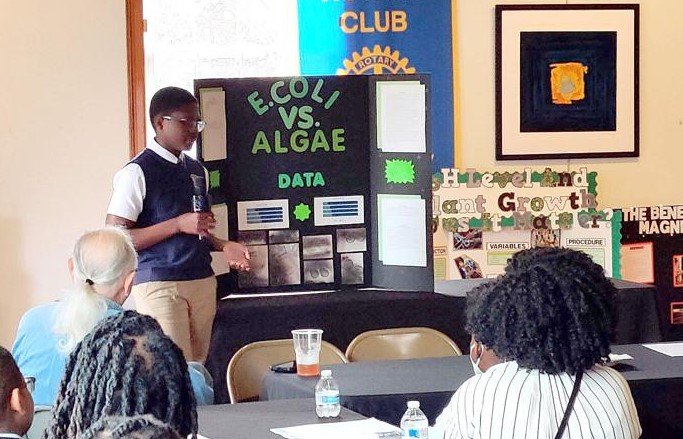The Clayton County Water Authority (CCWA) has once again spotlighted the ingenuity of young scientists in its annual science fair. This year’s event saw a remarkable display of talent as students from various schools presented projects that explored critical water-related issues, showcasing their potential to shape the future of environmental science.
Sparking Innovation in Elementary Education
At the elementary level, students from Anderson Elementary School stood out with their project, “World Saving Systems: How can you make rainwater safe for humans?” Their inquiry into water purification methods not only earned them the Novice Award but also a chance to compete at the Georgia College K-5 Science and Engineering Fair.

The first paragraph will discuss the importance of introducing scientific inquiry early in education and how projects like these inspire curiosity and problem-solving skills. The second paragraph will delve into the details of the students’ project, explaining their approach to making rainwater potable. The third paragraph will reflect on the broader implications of their research for global water safety issues.
Middle Schoolers Tackling Real-World Problems
North Clayton Middle School’s Mekhi Cunningham and Oluwatimileyin Idowu impressed the judges with their project on disaster relief, asking, “What products can we create to help those affected by disaster?” Their innovative ideas highlighted the practical applications of science in humanitarian efforts.
The first paragraph will explore the intersection of science and social responsibility as demonstrated by the students’ project. The second paragraph will provide an overview of their proposed solutions for disaster-affected areas. The third paragraph will consider the potential impact of such innovations on communities worldwide.
High School Researchers Leading the Charge
At the high school level, projects like “The Impact of Fertilizer on pH and Dissolved Oxygen” by Elite Scholars Academy’s Kyleigh Conley, and “Determining the Most Effective Ratio for Water Filtration” by Jonesboro High School’s Stephanie Ezenne, not only addressed pressing environmental concerns but also secured their creators spots in both the Georgia Science and Engineering Fair and the International Science and Engineering Fair.
The first paragraph will highlight the significance of high school research in contributing to environmental science. The second paragraph will examine the methodologies and findings of the award-winning projects. The third paragraph will discuss the role of such research in advancing our understanding of ecological preservation and sustainability.
